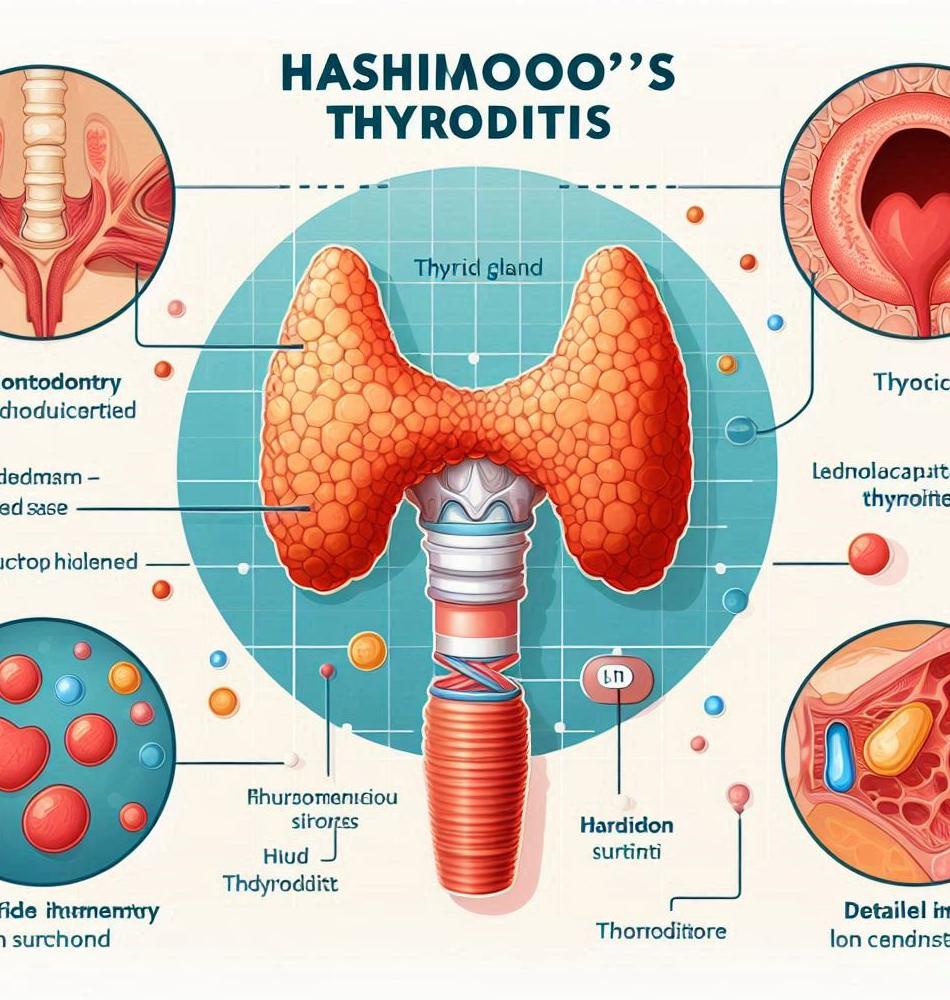Unraveling Hashimoto's Disease: What it Does to Your Body 🩺
Hashimoto's disease is an autoimmune disorder that primarily affects the thyroid gland, leading to a host of complications and symptoms that can impact your overall wellbeing. Being one of the most prevalent thyroid conditions, it’s essential to understand how this disease manifests itself in the body and what it means for your health. So, what does Hashimoto's disease do to your body? Let’s dig deeper into this conundrum and unravel the mysteries surrounding it.
Understanding Hashimoto's Disease 🤔
Before diving into the effects of Hashimoto's disease, it’s crucial to establish what it is. Hashimoto's disease is an autoimmune condition in which the immune system mistakenly attacks the thyroid gland, leading to hypothyroidism, or an underactive thyroid. This gland is responsible for producing hormones that regulate various bodily functions, including metabolism, energy levels, and mood.
Why Does the Body Attack Itself? 🤷♂️
The exact cause of Hashimoto's disease remains elusive, but several factors are believed to contribute to its development. Some key aspects include:
Genetics 🔬
If you have a family history of autoimmune diseases, you may have an increased risk of developing Hashimoto's disease.
Environmental Triggers 🌍
Exposure to certain chemicals, viruses, or stressful events may trigger the onset of the disease.
Hormonal Influences ⚖️
Women are significantly more likely to be affected, suggesting that hormones play a role in the disease's development.
Identifying the Symptoms 🚩
Hashimoto's disease symptoms can often overlap with other conditions, which makes it challenging to diagnose. However, some of the most common symptoms include:
- Fatigue
- Weight gain
- Cold intolerance
- Constipation
- Dry skin and hair
- Muscle weakness
- Joint pain
- Depression and mood swings
How Hashimoto's Disease Progresses 🚦
Hashimoto's disease can be a gradual process. Initially, you may experience mild symptoms that can easily be dismissed. Over time, as the thyroid damage increases, the level of thyroid hormones in your body decreases, leading to more pronounced symptoms. It’s important to recognize the signs early on to avoid long-term complications.
The Impact on Metabolism ⏱️
One of the most significant effects of Hashimoto's disease is on metabolism. With insufficient levels of thyroid hormones, your metabolism may slow down, resulting in:
- Weight gain
- Increased fat retention
- Difficulty losing weight
- Changes in appetite
Heart and Cardiovascular Health ❤️
Hashimoto’s can also affect heart health by causing an increase in bad cholesterol levels, contributing to higher risks of cardiovascular diseases. Regular monitoring of your heart health is vital if you have been diagnosed with Hashimoto's.
Primary Treatment Strategies 💊
While Hashimoto's disease doesn’t have a cure, there are several treatment strategies to manage the symptoms effectively. The primary method involves replacing the deficient thyroid hormones through medication.
Levothyroxine Therapy 🏥
Levothyroxine is the standard medication prescribed for individuals with Hashimoto's, as it helps normalize hormone levels. Regular monitoring of thyroid hormone levels is essential to adjust dosages as needed.
Diet and Lifestyle Adjustments 🥗
Incorporating dietary changes can also positively impact your health. Here are some adjustments that may help:
- Include selenium-rich foods such as Brazil nuts
- Enhance your diet with omega-3 fatty acids from fish
- Limit processed and inflammatory foods
- Stay hydrated and maintain a balanced diet
Frequently Asked Questions ❓
- What causes Hashimoto's disease?
- Is Hashimoto's disease hereditary?
- How long does it take to be diagnosed?
- Can lifestyle changes help manage symptoms?
- What are the potential complications if left untreated?
Complications and Challenges 🔍
Hashimoto's disease, if left untreated, can lead to serious health complications. Some potential risks include:
- Heart problems, such as heart disease or heart failure
- Goiter, which is characterized by an enlarged thyroid
- Infertility and complications in pregnancy
- Myxedema coma, a rare but life-threatening condition from severe hypothyroidism
Living with Hashimoto's Disease 🌼
Living with Hashimoto's disease requires careful management and monitoring. Staying informed is key. Joining support groups and connecting with healthcare providers can help you navigate the complexities of managing this condition.
Regular Monitoring and Check-ups 🩹
It's essential to schedule regular appointments with your healthcare provider. Regular blood tests can help monitor hormone levels, ensuring that your treatment plan is effective and adjustments are made as needed.
Emotional and Mental Well-being 🧘♀️
As Hashimoto's disease affects many areas of health, it also takes a toll on emotional and mental well-being. Addressing mental health and seeking support can help improve quality of life. Practices such as yoga, meditation, or even speaking with a therapist can provide significant benefits.
Conclusion: A Journey of Understanding 🚀
Hashimoto's disease can undoubtedly change the way your body operates, but understanding this condition is the first step towards effective management. From recognizing symptoms to partnering with healthcare professionals, staying informed will empower you on this journey of living well with Hashimoto's disease.
While the road may be challenging, taking proactive measures in understanding, managing, and treating this condition can make a significant difference in your health and quality of life. Always remember, knowledge is power. Embrace your journey, interact with your healthcare team, and prioritize self-care.
.png)






